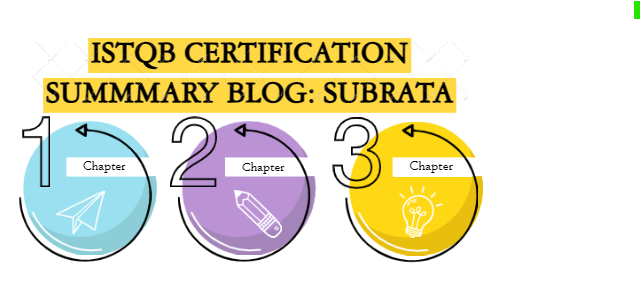
ISTQB CTFL(v4) Chapter3
(1) Static Testing Basics
- Can be applied for verification and validation
- Work product examined manually
- Applicable to almost any work product:
- Requirement specification documents
- Source code
- Test plans, test cases, product and test charters
- Project documentation, contracts and models
- Exceptions: 3rd party executable code can't be static tested
Value of Static Testing
- Detect defects in the earliest phases of the SDLC (early testing)
- Identify defects which can't be detected by dynamic testing:
- Unreachable code
- Design patterns
- Non-executable work products
- Evaluate quality of work products
- Ensure requirements describe stakeholders' actual needs
- Less time/effort for fixing defects later
- Detect code defects more efficiently
(2) Static Testing vs Dynamic Testing
Static Testing
- Finds defects directly
- Applicable to non-executable work products
- Measures quality characteristics not dependent on code execution:
- Maintainability
- Detects specific defects types:
- Requirements defects
- Design defects
- Certain coding defects
- Deviations from standards
- Incorrect interface specifications
- Specific security vulnerabilities
- Gaps/inaccuracies in test basis coverage
Dynamic Testing
- Uncovers failures (leading to associated defects)
- Applicable to executable work products
- Measures execution-dependent quality characteristics:
- Performance efficiency
(3) Review Process
Activities
- Planning
- Define scope, work product, quality characteristics
- Identify focus areas, exit criteria, effort and timelines
- Review initiation
- Ensure all participants/resources are prepared
- Individual review
- Assess work product quality
- Identify anomalies, recommendations, questions
- Communication and analysis
- Discuss anomalies in review meeting
- Fixing and reporting
- Create defect reports
- Accept work product when exit criteria met
Roles
- Manager: Decides review scope, staffing, timing
- Author: Creates/fixes work product
- Moderator (facilitator): Ensures effective meetings
- Scribe (recorder): Documents anomalies and review info
- Reviewer: Performs review activities
- Review leader: Overall responsibility for review
Types
- Informal review: No defined process or formal output
- Walkthrough: Led by author; multiple objectives
- Technical Review: Performed by technical experts; moderator-led
- Inspection: Most formal; follows complete process
Success Factors
- Clear objectives
- Appropriate review type selection
- Reviewing small chunks
- Providing feedback
- Adequate preparation time
- Management support
- Effective meeting facilitation
Likes (
0 )
comments (
0 )
2025-07-30 12:56:35